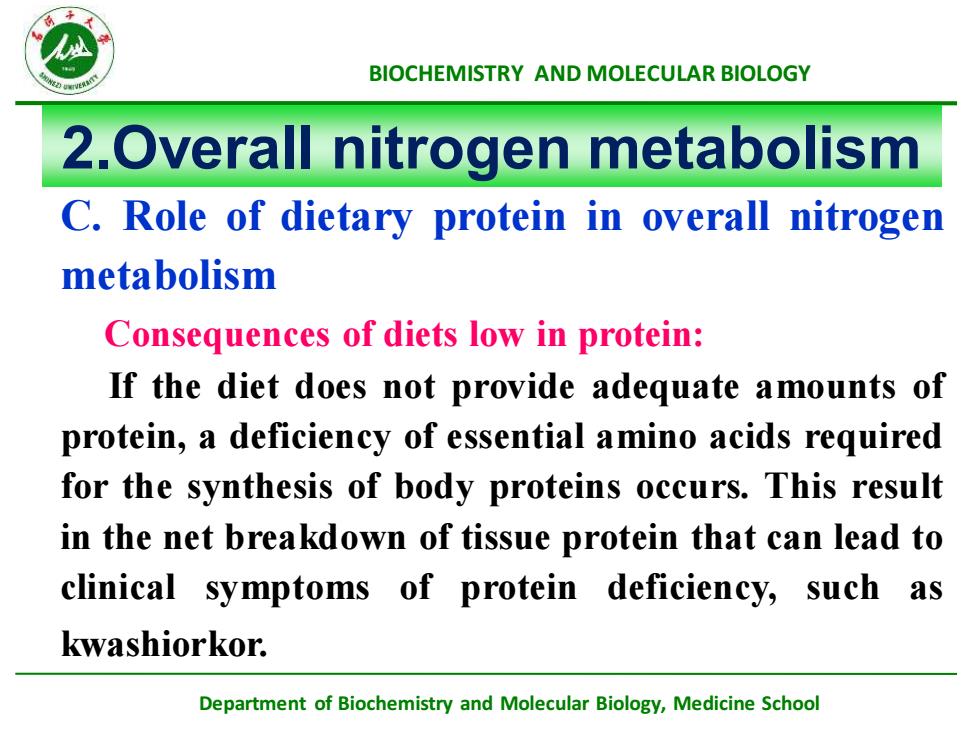
BIOCHEMISTRYANDMOLECULARBIOLOGY2.Overall nitrogen metabolismC. Role of dietary protein in overall nitrogenmetabolismConsequences of diets low in protein:If the diet does not provide adequate amounts ofprotein, a deficiency of essential amino acids requiredfor the synthesis of body proteins occurs. This resultin the net breakdown of tissue protein that can lead toclinical symptoms of protein deficiency, suchaskwashiorkor.Department of Biochemistry and Molecular Biology,MedicineSchool
Department of Biochemistry and Molecular Biology, Medicine School BIOCHEMISTRY AND MOLECULAR BIOLOGY 2.Overall nitrogen metabolism C. Role of dietary protein in overall nitrogen metabolism Consequences of diets low in protein: If the diet does not provide adequate amounts of protein, a deficiency of essential amino acids required for the synthesis of body proteins occurs. This result in the net breakdown of tissue protein that can lead to clinical symptoms of protein deficiency, such as kwashiorkor
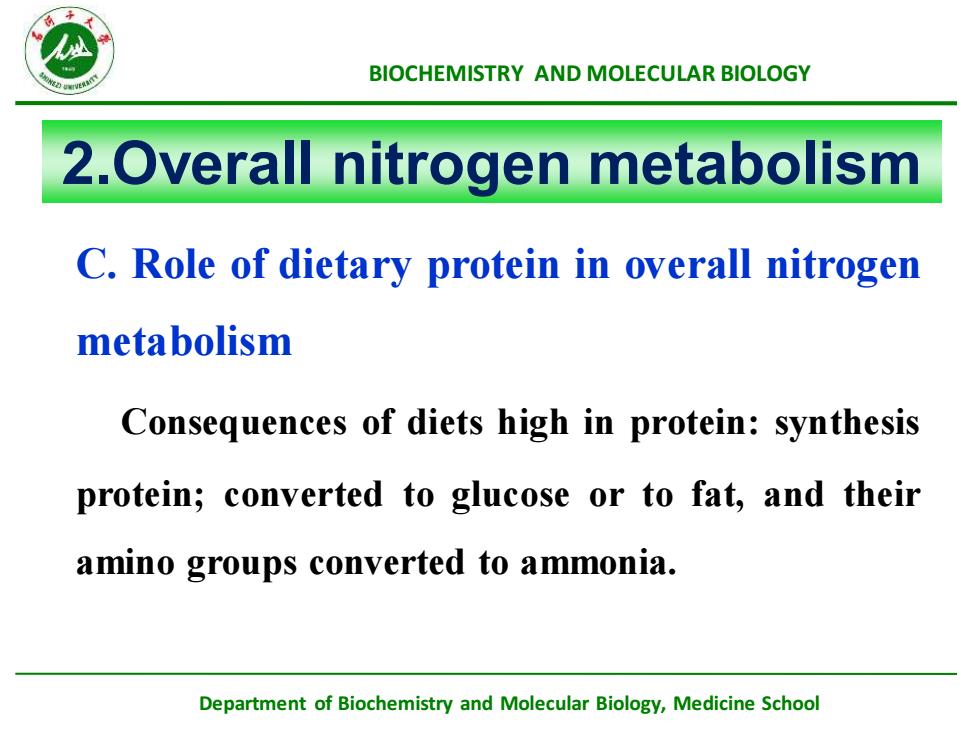
BIOCHEMISTRYANDMOLECULARBIOLOGY2.Overall nitrogen metabolismC. Role of dietary protein in overall nitrogenmetabolismConsequences of diets high in protein: synthesisprotein; converted to glucose or to fat, and theiramino groups converted to ammonia.Department ofBiochemistry and Molecular Biology,MedicineSchool
Department of Biochemistry and Molecular Biology, Medicine School BIOCHEMISTRY AND MOLECULAR BIOLOGY 2.Overall nitrogen metabolism C. Role of dietary protein in overall nitrogen metabolism Consequences of diets high in protein: synthesis protein; converted to glucose or to fat, and their amino groups converted to ammonia
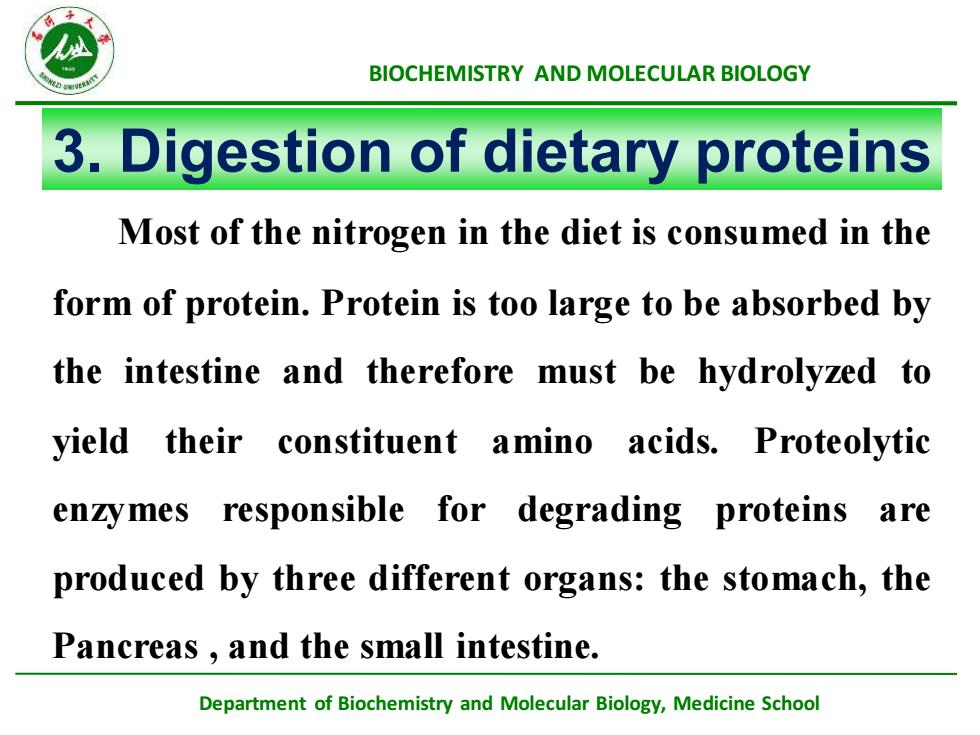
北BIOCHEMISTRYANDMOLECULARBIOLOGY3.Digestion of dietary proteinsMost of the nitrogen in the diet is consumed in theform of protein. Protein is too large to be absorbed bythe intestine and therefore must be hydrolyzed toyield their constituent amino acids. Proteolyticenzymes responsible for degrading proteinsareproduced by three different organs: the stomach, thePancreas , and the small intestine.Department of BiochemistryandMolecularBiology,MedicineSchoo
Department of Biochemistry and Molecular Biology, Medicine School BIOCHEMISTRY AND MOLECULAR BIOLOGY 3. Digestion of dietary proteins Most of the nitrogen in the diet is consumed in the form of protein. Protein is too large to be absorbed by the intestine and therefore must be hydrolyzed to yield their constituent amino acids. Proteolytic enzymes responsible for degrading proteins are produced by three different organs: the stomach, the Pancreas , and the small intestine
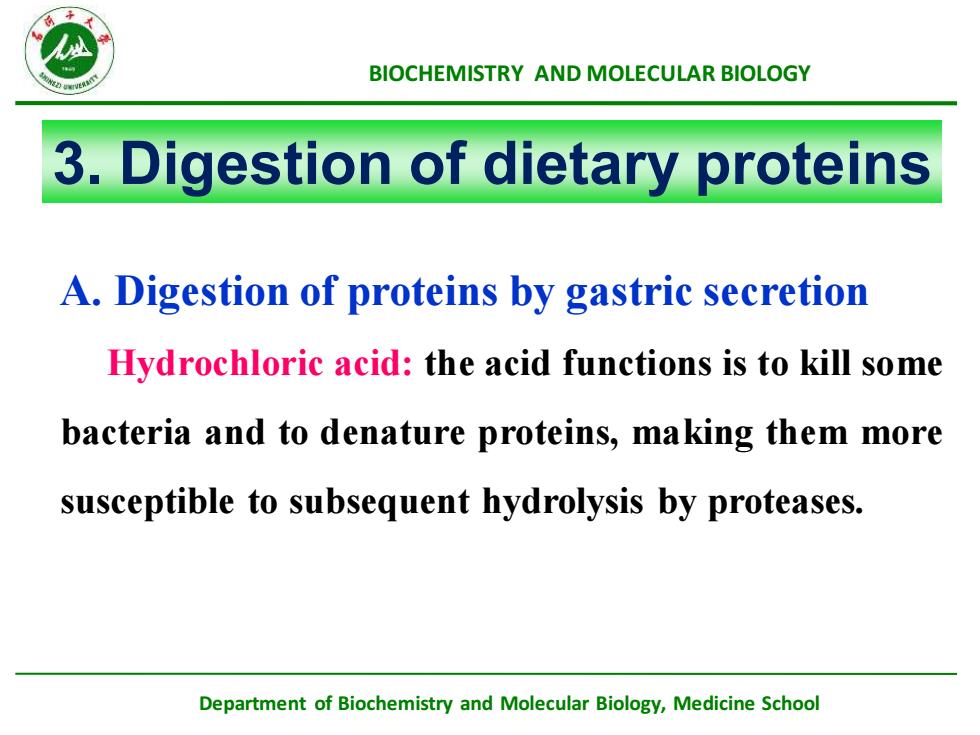
BIOCHEMISTRYANDMOLECULARBIOLOGY3. Digestion of dietary proteinsA.Digestion of proteins by gastric secretionHydrochloric acid: the acid functions is to kill somebacteria and to denature proteins, making them moresusceptible to subsequent hydrolysis by proteases.DepartmentofBiochemistryand MolecularBiology,MedicineSchool
Department of Biochemistry and Molecular Biology, Medicine School BIOCHEMISTRY AND MOLECULAR BIOLOGY A. Digestion of proteins by gastric secretion Hydrochloric acid: the acid functions is to kill some bacteria and to denature proteins, making them more susceptible to subsequent hydrolysis by proteases. 3. Digestion of dietary proteins
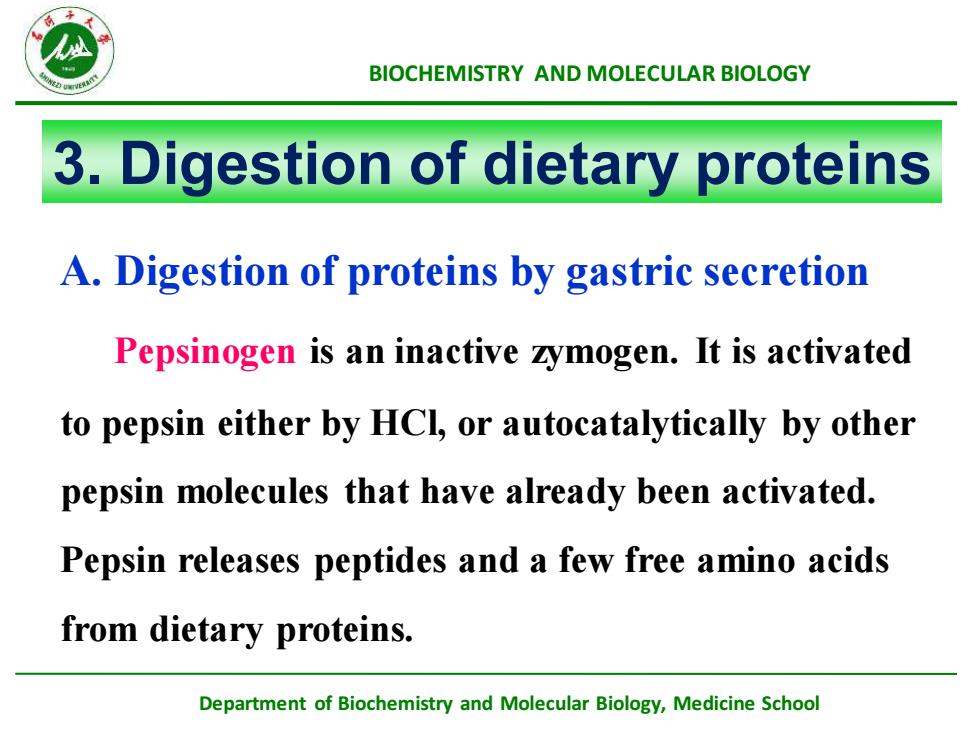
BIOCHEMISTRYANDMOLECULARBIOLOGY3. Digestion of dietary proteinsA. Digestion of proteins by gastric secretionPepsinogen is an inactive zymogen. It is activatedto pepsin either by HCl, or autocatalytically by otherpepsin molecules that have already been activated.Pepsin releases peptides and a few free amino acidsfrom dietary proteins.Department of Biochemistry and Molecular Biology,MedicineSchool
Department of Biochemistry and Molecular Biology, Medicine School BIOCHEMISTRY AND MOLECULAR BIOLOGY 3. Digestion of dietary proteins A. Digestion of proteins by gastric secretion Pepsinogen is an inactive zymogen. It is activated to pepsin either by HCl, or autocatalytically by other pepsin molecules that have already been activated. Pepsin releases peptides and a few free amino acids from dietary proteins